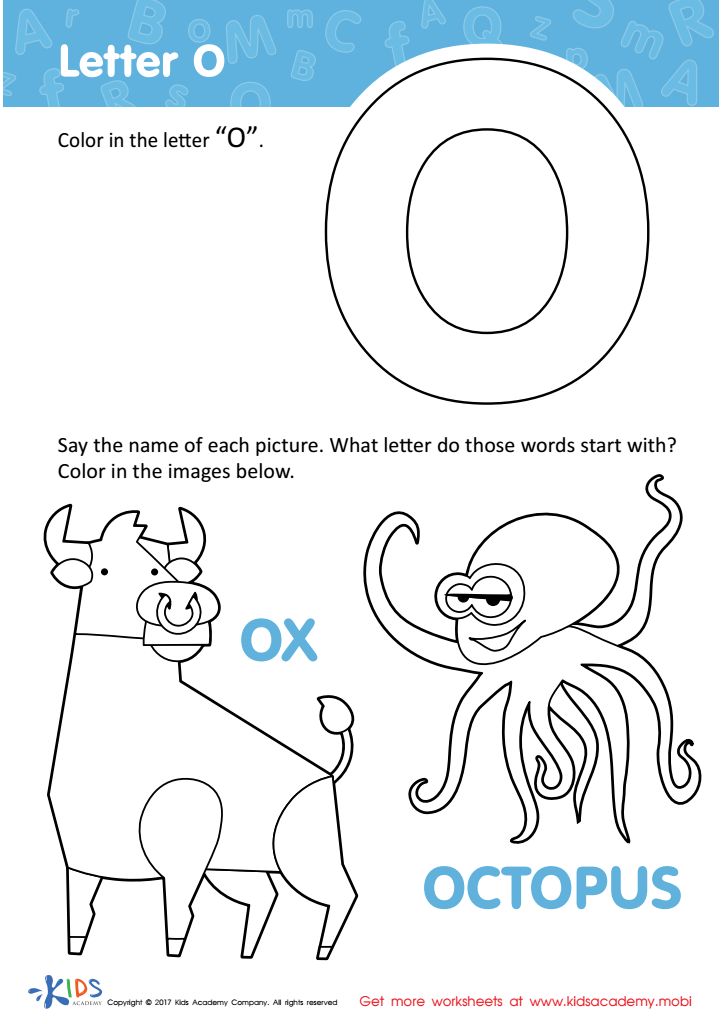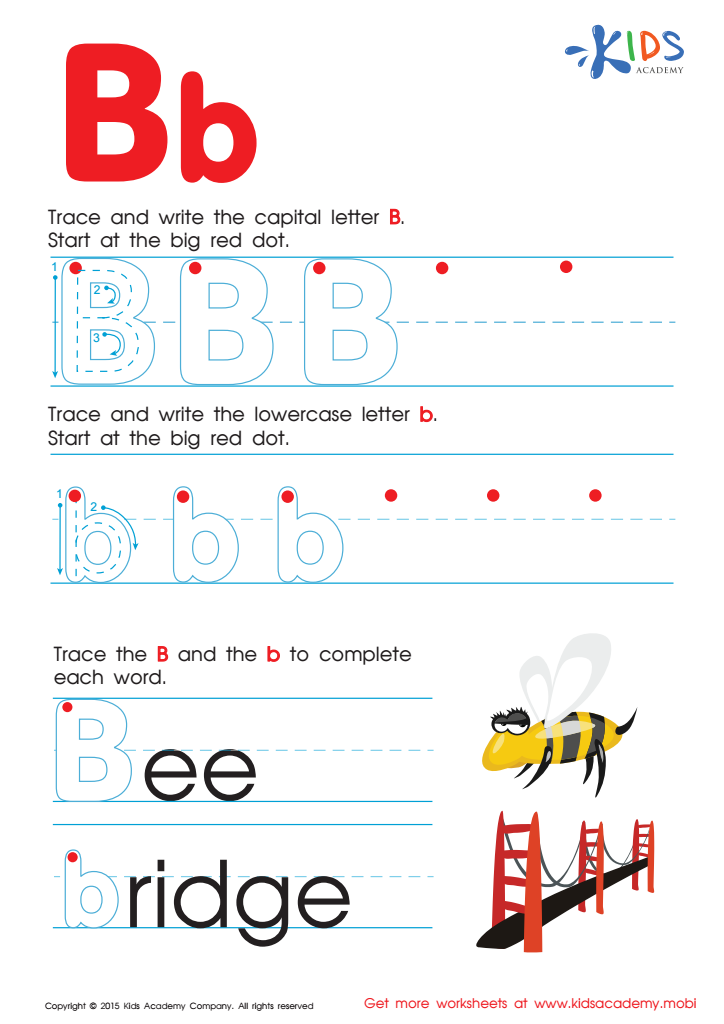Motor skills development Normal Alphabet Worksheets for Ages 5-8
3 filtered results
-
From - To
Enhance your child's motor skills with our Normal Alphabet Worksheets designed specifically for ages 5-8. These engaging and interactive worksheets focus on developing fine motor skills as children practice letter recognition and writing. Each worksheet combines fun activities that encourage proper grip, precision, and control, making learning enjoyable. Your child will trace, color, and complete a variety of alphabet exercises that promote hand-eye coordination and dexterity. Perfect for use at home or in the classroom, these resources support essential early learning milestones while fostering a love for letters. Download our worksheets today and watch your child thrive in their motor skills and literacy journey!


Letter H Tracing Page


Letter O Coloring Sheet


Letter B Tracing Page
Motor skills development is crucial for children aged 5-8 as it lays the foundation for their physical, cognitive, and social growth. During this age, children are refining both gross motor skills (like running and jumping) and fine motor skills (like writing and using scissors). Parents and teachers should care about this developmental stage because these skills significantly impact academic performance and daily activities.
Fine motor skills, in particular, are essential for tasks such as writing, drawing, and self-care activities like buttoning a shirt. Mastery of these skills boosts a child's confidence, helping them become more independent and engaged in their learning. Conversely, delays in motor skills can lead to frustration and low self-esteem, affecting a child’s willingness to participate in physical and academic pursuits.
Furthermore, motor skill development encourages important traits such as patience, coordination, and concentration. Activities that promote motor skills, such as arts and crafts or outdoor play, also provide opportunities for social interaction, fostering teamwork and communication skills. Supporting motor skills development not only aids in physical health but also sets the stage for lifelong learning and social-emotional well-being. Thus, understanding and nurturing motor development should be a priority for both parents and teachers.

 Assign to My Students
Assign to My Students














